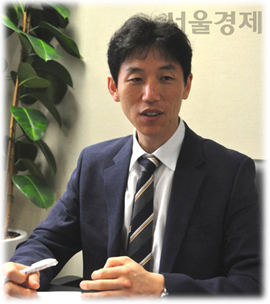| 일 | 월 | 화 | 수 | 목 | 금 | 토 |
|---|---|---|---|---|---|---|
| 1 | 2 | 3 | 4 | 5 | 6 | 7 |
| 8 | 9 | 10 | 11 | 12 | 13 | 14 |
| 15 | 16 | 17 | 18 | 19 | 20 | 21 |
| 22 | 23 | 24 | 25 | 26 | 27 | 28 |
- Task Delegates of the Ruler: Inner Circle
- politics and war
- the 2nd law
- new political science
- political phenomena
- the 3rd Law of politics
- Power
- survival process theory
- Mathematical Model of political science
- Regime Change
- Canonical Politics
- 1st Law of politics
- Differences in Individual Abilities and Tendencies
- politics
- Orderliness of Choice
- Political Regime
- Samjae Capacities
- Cohesion Force
- Operation of the 2nd Law
- Political Change
- Samjae Capacity
- political organization
- Political Regimes
- politics of Inner Circle
- power and organization
- Mathematical Model of politics
- Political power
- mechanism of politics
- Value Systems
- Order of Choice
- Today
- Total
New Political Science
a. ㉠ Fundamental Beliefs 본문
㉠ Fundamental Beliefs

Firstly, fundamental beliefs refer to the deeply held values that exist in the hearts of each political member. Examples include religious beliefs that determine people's attitudes towards morally relevant issues. In addition, fundamental beliefs encompass fundamental values and basic beliefs, such as contemporary faith in democracy, 19th-century absolute devotion to Marxism, or conservative and progressive political attitudes.
The fundamental beliefs that are commonly held by the majority of political members strongly influence the long-term choices of the masses. It is almost impossible to change this in the short term. Successful political actors usually operate within a range of choices that align with these fundamental beliefs. Historically, the religion of Islam started in accordance with the fundamental beliefs of the Middle Eastern region at that time, and the leader Han Shandong, who initiated the White Lotus Sect at the end of the Yuan Dynasty, expanded the religious influence with doctrines that aligned with the fundamental beliefs of the Chinese people. In contrast, the compromise made by the federal government in the early 1860s to ease tensions between the North and South before the American Civil War was rejected because it conflicted with the fundamental beliefs of the Republican Party, which opposed slavery. A Japanese legislator who claimed that President Barack Obama had African slave ancestry and thus undermined the fundamental beliefs of Americans on racial discrimination also faced political backlash.
The method of strengthening one's ideological capacity through activities that align with the fundamental beliefs of the majority of political actors is called "acquisition of legitimacy." Participating in ceremonies or disguising one's status are used as micro-level methods of acquiring legitimacy. Ancient Indian tribal leader Raja expanded his power by receiving legitimacy from a group of priests. At the end of the Yuan Dynasty, Esen, the leader of the emerging Oirat faction, who was among the defeated Mongolian nobles by the Ming General, pretended to be a descendant of Genghis Khan and the successor to Genghis Khan's mission, as an attempt to persuade political actors through acquiring legitimacy. In 1957, after the successful coup, Sarit Thanarat of Thailand sought to acquire legitimacy by using the constitutional monarch King Bhumibol Adulyadej, justifying himself with the three concepts of "nation, religion, and king" called Raktai, and reviving traditional events related to the king.
As seen in the examples above, fundamental beliefs are elements of ideological capacity that exert their effects on a macro-level scale.
'Mechanism of Politics' 카테고리의 다른 글
| a. ㉢ Cultural Activities (0) | 2023.12.18 |
|---|---|
| a. ㉡ Theoretical System (0) | 2023.12.18 |
| a. Social Structure of Value Systems (0) | 2023.12.18 |
| (3) Phenomenology of Political Ideology (0) | 2023.12.18 |
| b. ㉣ Primitive Economy and Advanced Economy (0) | 2023.12.18 |


